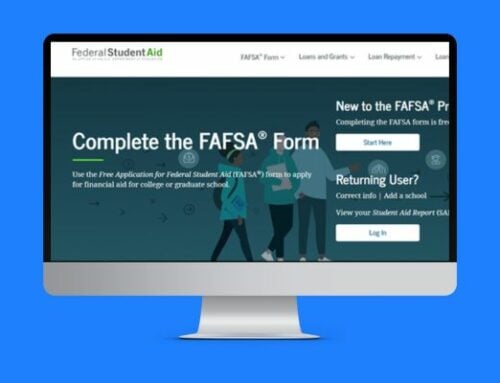High School Freshman and Sophomore Checklist Preparing for College
For students planning to attend college, starting off their high school career strong is very important. While 4 years may seem like a long time, it’ll go by fast. You’ll want to make sure you’re taking all of the classes you need to meet graduation and college requirements. It’s much easier to do this early than to play catch-up at the end. This freshman and sophomore checklist keep you on track for college.
You’ll also want to take time to explore your interests and what you might want to do after high school and college. Getting involved in organizations and extracurricular activities provides these opportunities. Explore widely early and then focus on what you truly enjoy.
Freshman and Sophomore Years
☐ Maintain a strong academic performance and take challenging courses that align with your interests and college goals.
☐ Get involved in extracurricular activities and assume leadership roles when possible. Quality of involvement is more important than quantity, so focus on activities that genuinely interest you.
☐ Research and attend college fairs, information sessions, and virtual events to connect with college representatives and learn more about different institutions.
☐ Keep track of your academic achievements, extracurricular activities, leadership roles, and community service in a document you can use for future scholarships and college applications.
☐ Discuss your college aspirations with your parents, teachers, and school counselor to gather insights and guidance.
☐ Use the career search at studentaid.gov/resources/prepare-for-college/students/career-search to research your career options.
☐ Meet with your school counselor to discuss your college plans and ensure you are on track with required courses and credits. Ask your guidance counselor about AP courses, exams, and PSAT test dates. Ask what you should do to meet your goals. Things like specific courses, test prep, etc.
☐ Begin preparation for standardized tests. Sign up for the PSAT in 10th grade to familiarize yourself with the test before it actually counts.
☐ Figure out what summer programs or opportunities might also help meet your goals and prepare for college.
Parents
☐ Research college costs. Understand the colleges your child is interested in to estimate their expenses.
☐ Start or continue saving for college. Reduce your investment risk because you are only a few years from needing the money.
☐ If you are military and are planning to use your GI Bill benefit for your student begin to formulate a plan including researching yellow ribbon options at schools your student may consider.
☐ Assess your current financial situation. Evaluate your income, savings, investments, and debt to understand what you can afford.
☐ Explore financial aid options. Familiarize yourself with different types of financial aid, including scholarships, grants, work-study programs, and student loans.
☐ Understand tax implications. Your income and tax filing from the spring semester of their sophomore year through the fall semester of junior year will be the basis for your student’s initial financial aid. Minimizing income during this year may allow you to qualify for more aid.
☐ Discuss college affordability with your child. Have open and honest conversations with your child about college costs and your financial capabilities.
☐ Seek out financial advice. If you feel overwhelmed or need guidance, consider consulting with a financial advisor specializing in college planning. They can provide personalized advice based on your financial situation and goals.
☐ Encourage your child to pursue scholarships. Some of which may be available during early high school years.
Here are the junior (link) and senior (link) checklists




